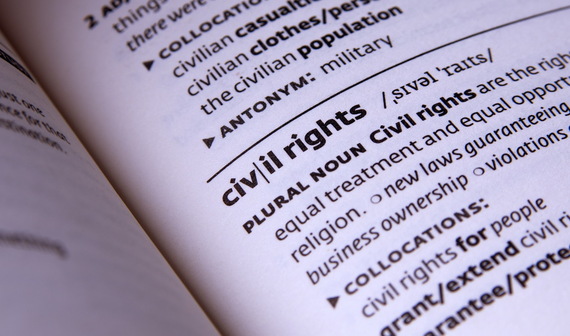Police use of lethal force as a civil rights violation is a common conversation in our society as is prosecutorial misconduct caused by withholding exonerating evidence. While these cases are extreme and valid examples of civil rights violations, there are others that impact large segments of society that often go unnoticed.
No Refusal Holiday
In Texas, prosecutors announced a "No Refusal Initiative" during rodeo season, stating that if a person is pulled over on suspicion of driving while intoxicated or driving under the influence, they have no right to refuse to take a breathalyzer test or a blood test. While the goal of reducing drunk driving is understandable, the initiative misleads the public into believing they are required to comply with these tests. However, as Houston attorney Grant Scheiner explains "this initiative cannot override civil rights." The prosecutors threaten that if someone does refuse, the police will get a warrant for the blood sample, but they neglect to explain that if they do obtain a warrant, the driver has the right to request their doctor take the sample, and the police must comply. The No Refusal campaign misleads the public and in doing so violates the civil rights of those it prosecutes as a result.
Police Access to Hotel Registries
- The guest's name and address;
- The number of people in each guest's party;
- The make, model, and license plate number of any guest's vehicle parked on hotel property;
- The guest's date and time of arrival and scheduled departure date;
- The room number assigned to the guest;
- The rate charged and amount collected for the room;
- The method of payment; and
- A copy of a photo ID for guests who paid in cash.
A lawsuit filed by hotel owners resulted in a Supreme Court decision in their favor, finding the century's old law violated their 4 Amendment rights.
Big Data and Civil Rights Violations
Big Data requires the analysis of large quantities of information with the results used to direct staffing processes, production decisions, marketing tactics and more. For several years the ACLU has expressed concern that analytics could be used for discriminatory purposes and recently the Federal Trade Commission released a report that concurred with this assessment. The FTC found that there is a pot for civil rights violations in areas including employment, housing, lending, and education. Discrimination can be based on race, gender, age, and other factors. In fact, a recent study found that Google Ads presented ads for high-paying jobs disproportionally to men over women. This is a relatively new field of analytics and the potential for civil rights violations is high.
While the FTC states it is committed to monitoring big data practices for violations of civil rights laws and to bring enforcement actions where appropriate, this will be a difficult process to manage. Companies must be aware of the subtle ways their analytics can result in discriminatory behavior and incorporate best practices to avoid these circumstances.
Social Media and Civil Rights Violations
Social media is reshaping our education system, largely for the better. These platforms are used for study tips, encouragement and learning management systems. However, the social media platform, Yik Yak is the center of a civil rights violation discussion at the University of Mary Washington in Fredericksburg, Virginia and other campuses around the country.
Students have used this Yik Yak to post racist, misogynistic and homophobic comments and many believe that their actions violates several civil rights laws, including the Title IX of the Education Amendments of 1972 and Title VI of the Civil Rights Act of 1964. A few universities are blocking this and similar apps but some experts argue that colleges and universities can't block this type of speech and are not obligated to monitor these apps. The Office of Civil Rights has begun an investigation and it remains to be seen where social media comments will qualify as civil rights violations or be protected as freedom of speech.
Bottom Line:
Civil rights violations take many forms and often appear as legally valid actions taken by prosecutors or law enforcement officials. Data analytics and social media have created new frontiers for discrimination and the boundaries are not yet established. The discussion will continue as society struggles to balance individual rights and freedoms against public security and technological expansion.
